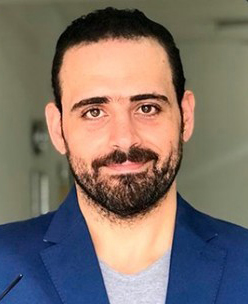 |
Assoc. Prof. Hassan Abuhassna
School of Education, Sunway University, Malaysia
|
|
Dr. Hassan Abuhassna is now an Associate Professor in the Faculty of Education at Sunway University. Previously, he was an assistant professor at Universiti Teknologi Malaysia (UTM) for four years, with expertise in educational technology. His academic journey began at UTM, where he spent three years as a research assistant, followed by a six-month postdoctoral fellowship and a brief stint as a part-time instructor. Dr. Abuhassna holds a Ph.D. with merit, specializing in educational technology, and a Master's degree in instructional technology. His research interests center around online education, particularly massive open online courses (MOOCs) and electronic learning (e-learning). Dr. Abuhassna has made significant contributions to the field, with his work indexed in prestigious databases like Web of Science (WoS) and Scopus. He continues to shape the future of online education through his dedication to innovative pedagogical approaches and remains a key figure in the academic community at Sunway University.
Speech Title: The Information Age for Education via Artificial Intelligence and Machine Learning: A Bibliometric and Systematic Literature Analysis |
|
 |
Dr. Ali Sorayyaei Azar
Management and Science University (MSU), Malaysia
|
|
Dr. Azar was a senior lecturer at the Department of Education, School of Education and Social Sciences, Management & Science University (MSU). He got his Ph.D. (in Applied Linguistics) from Faculty of Languages and Linguistics, University of Malaya, Malaysia in 2017. In a career spanning 26 years, he has worked as an EFL/ESL senior lecturer, researcher, and curriculum developer in Iran, Turkey, Qatar, and Malaysia. He has published and presented research papers on his topic of interest namely TESL, Academic Discourse Analysis, Genre Analysis, Corpus Linguistics, Educational Technology, and English Language Teaching Strategies in several prestigious journals including GEMA Online@ Journal of Language Studies (UKM, Malaysia), Asian ESP Journal, Asian EFL Journal, Studies in English Language and Education, World Journal of English Language, and Education and Information Technologies (Springer). He is the Editor of three books, including 'Reconceptions of Policies, Strategies, and Challenges in Education 5.0.', 'Innovations in Educational Robotics: Advancing AI for Sustainable Development', and 'Smart Education and Sustainable Learning Environments in Smart Cities'. The books will be published by IGI Global- Publisher, USA. Besides, Dr. Azar has been appointed as a member of the Editorial Board for several journals, including the Asian Journal of University Education (AJUE), established by Universiti Teknologi MARA, Shah Alam, Malaysia; the International Journal of Modern Languages and Applied Linguistics (IJMAL), established by Akademi Pengajian Bahasa (APB), Universiti Teknologi MARA, Shah Alam, Malaysia; Education Quarterly Reviews, established by the Asian Institute of Research; and the Pegem Journal of Education and Instruction (PEGEGOG), established by PEGAGOG Academy Yayincilik Egitim Danismanlik Hizmetleri Editorluk Hizmetleri, Turkey.
Speech Title: The Impact of Interaction and Engagement on Learners' Satisfaction in Online Learning Environment: A Case Study in Malaysia Abstract: In an online learning, the interaction between participants and instructors appears to be an essential subject in many research studies that evaluate students' satisfaction. Yet there really is a dearth of research on how students' engagement affects students' satisfaction. The significant connection between students' engagement and students' satisfaction must be explored further (Baber, 2020). The aim of this study was to investigate the impact of students' interaction on students' satisfaction through the mediating effect of the engagement in an online learning environment. The concept of interaction was used in this study, which was further broken down into three categories: student -student interaction, student-instructor interaction, and student-content interaction in an online learning environment. This research was conducted at a private university in Malaysia. The online survey with a questionnaire was used to collect data, and the 390 responses were obtained randomly. We proposed seven hypotheses and verified that out of seven, only four were supported based on structural modelling results. The findings revealed that students' satisfaction is not directly linked to the student-instructor interaction but rather to the presence of students' engagement. Finally, to improve the students' satisfaction in an online learning, the student-student interaction and the student-content interaction should be emphasized because both positively impact on the students' satisfaction. Likewise, the students' engagement is also significant for the student-instructor interaction and the students' satisfaction. Consequently, online instructors must be more vigilant in monitoring and improving the students' engagement to improve the students' satisfaction. |
|
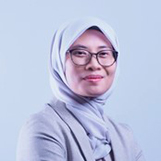 |
Assoc. Prof. Ts. Dr. Aslina Baharum
Sunway University, Malaysia
|
|
Ts. Dr. Aslina holds the esteemed position of Associate Professor and Programme Leader of Department of Computing and Information Systems (DCIS) Postgraduate at the School of Engineering and Technology, Sunway University. Previously, she has served as a Senior Lecture at the Faculty of Computer and Mathematical Sciences in Universiti Teknologi MARA (UiTM), and as a Senior Lecturer at the Faculty of Computing and In-formatics in Universiti Malaysia Sabah (UMS), where she led the User Experience (UX) research group. Completing her academic journey, she also brings valuable industry ex-periences as a former Information Technology (IT) Officer at the Forest Research Institute of Malaysia (FRIM). She had experienced more than 20 years in the IT field.
She earned her PhD in Visual Informatics from UKM, a Master Science degree in IT from UiTM, and Bachelor of Science (Hons.) in E-Commerce from UMS. Dr. Ask is an active member of the Young Scientists Network - Academy of Science Malaysia, a Senior Mem-ber IEEE, and a certified Professional Technologist recognized by MBOT. She has further contributed to the field by serving as an auditor for MBOT/MQA.
Speech Title: AI and UX: Revolutionizing Educational Technology for Enhanced Learning Experiences Abstract: In the current educational landscape, educators and institutions face significant challenges in effectively meeting the diverse needs of students. Traditional educational methods often fall short of providing personalized, engaging, and efficient learning experiences, leading to decreased student motivation and suboptimal outcomes. The integration of Artificial Intelligence (AI) and User Experience (UX) design presents a transformative solution to these pressing issues. This study will explore the intersection of AI and UX in educational technology, highlighting how intelligent algorithms and intuitive interfaces can collaboratively address these challenges. We will examine the role of AI in personalizing learning paths, the impact of UX on enhancing student engagement, and the real-world applications that demonstrate the power of this convergence. Additionally, we will discuss the challenges of implementing AI and UX in education, including ethical considerations and accessibility concerns. By leveraging AI and UX, we can create more dynamic, responsive, and effective learning environments that empower students and educators alike. Finally, we delve into cutting-edge innovations, best practices, and the future trends shaping the educational technology landscape, ultimately aiming to foster a more enriching and inclusive educational experience for all learners. |
|
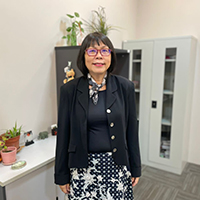 |
Prof. Nee Nee Chan
UCSI University, Malaysia
|
|
Thought-provoking speaker, researcher, and teacher, Professor Chan inspires others to think critically about their actions and reflect on their work. As an invited speaker to conferences and seminars, Nee Nee's highly interactive style enables her to make meaningful connections with her audience.
Speech Title: Investigating the Adoption of Generative Artificial Intelligence (AI) in Universities: Southeast Asian (SEA) University Instructors' Perspectives of the AI Tidal Wave Abstract: With the public release of ChatGPT in November 2022, the initial response to Generative Artificial Intelligence (GenAI) among the academic community has ranged from euphoria to hysteria. Within this conflicted landscape of opinions, there appears to be a scarcity of empirical studies on GenAI use and its impact on teaching and learning, assessment and research practices. This talk will share the findings of SEA university instructors' experiences of GenAI use for academic purposes, by themselves, their colleagues, and their students. Hermeneutic phenomenology was used as the framework of this study for its philosophical principles and research methodology. 10 focus groups of 37 university instructors were interviewed using hermeneutic phenomenological protocols. The findings uncovered the lack of guidance on day-to-day academic practices that involve plagiarism, excessive use of AI in assignments and uncertainty on penalties for such infringements. These findings suggest an urgent need for a more sustainable and coherent AI policy in SEA universities today. |
|
 |
Dr. Wen Huey Kan
Wawasan Open University, Malaysia
|
|
Dr. Kan Wen Huey is a seasoned professional with a comprehensive background spanning manufacturing, business strategic consulting, and academia. With 13 years in manufacturing, 8 years in business strategic consulting, and 6 years in academia, Dr. Kan brings a wealth of expertise to the intersection of industry and education. Holding a Doctorate of Business Administration (DBA) from Universiti Sains Malaysia (USM) and Chartered membership with The Chartered Institute of Logistics and Transport in Malaysia (CMILT), Dr. Kan's qualifications underscore proficiency in people management, strategic planning, process control, leadership, and supply chain management. Dr. Kan has made impactful contributions to research in technology in education and digital business model innovation, showcased in reputable journals. With a proven track record in leading training courses and consultancy projects, Dr. Kan's commitment to excellence is evident in numerous public speaking engagements at conferences, education fairs, and webinars, contributing to thought leadership in student satisfaction, digital transformation, and business excellence.
Speech Title: Navigating the Future of Learning: Insights into Online Education Platforms |
|
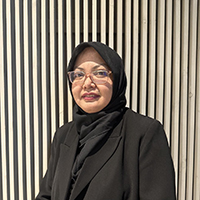 |
Dr. Rafidah Binti Abd Karim
Universiti Teknologi MARA, Malaysia
|
|
Dr. Rafidah Abd Karim is a senior lecturer and an active researcher at Universiti Teknologi MARA, Malaysia. She received her Ph.D. in TESL, specializing in Mobile Learning from Sultan Idris Education University, Malaysia. She serves on the editorial board of several national and international journals. She is also an active reviewer for more than 30 numerous distinguished international journals. She has published more than 60 publications in high-indexed and non-indexed proceedings, journals, book and book chapters mainly in mobile learning, digital mind mapping, digital technology, e-learning, language learning, gender studies and indigenous studies in both national and international levels. She gave more than 40 paper presentations and delivered talks as keynote speaker, plenary speaker and invited speaker in seminars, workshops, conferences in national and international levels. She is a recipient of the Open Education System Individual Fellowship from Anadolu, Turkey in 2023. She served as a visiting scholar in Open University Indonesia, a guest lecturer in Institut Teknologi Sepuluh Nopember, Indonesia in 2022 and Anadolu University, Turkey in 2023. She was awarded for more than 50 innovation awards in national and international innovation competitions. She is also involving in several research grant projects at national and international levels.
Speech Title: AI Content Creation: Exploring the Potential of Mobile Learning Abstract: Artificial Intelligence (AI) systems are revolutionizing e-learning, making it more engaging, personalized and accessible. It offers endless possibilities, from intelligent tutoring systems to predictive analytics, each element working in harmony to create a more dynamic, inclusive, and effective learning environment. Besides, it can satisfy your needs, regardless of your interests in gamification, personalized learning, or mobile support that can fulfill your requirements. The future of AI in content creation AI holds immense potential for innovation and engagement. Moreover, AI-powered mobile learning has enormous ability to transform education by introducing methods for individualized instruction. It can improve the efficacy of mobile learning. Therefore, this speech highlights an overview of AI content creation, findings from my previous studies on mobile learning and the mobile learning with AI content creation prospects. By using AI-based mobile learning, we can ensure that training and education continue to be effective tools for professional and personal development and that learners and trainees of all ages and backgrounds can fulfill their potential and realize their goals. We might expect to see even more creative and useful AI-based mobile learning solutions in the future as AI technology develops and becomes more advanced. Hence, AI is a game-changer mobile learning, bringing with it an effective set of tools that is revolutionizing the way students learn.
|
|
 |
Dr. Michal Paluch
Cardinal Stefan Wyszynski University, Poland
|
|
Dr. Michal Paluch is an Assistant Professor at the Department of Philosophy of Education at the Cardinal Stefan Wyszynski University in Warsaw. In his research, he attempts to link the classic categories of Western philosophical anthropology (encounter, dialogue, relationship, self, conscience) with the generative possibilities of artificial intelligence. He considers these proposals theoretically and tests them in the practice of pedagogical counseling as part of work on his own concept of developing "deep competences". The main areas of research on deep competences are:
Speech Title: Artificial intelligence in the process of diagnostics and pedagogical counseling: Case studies
|
|
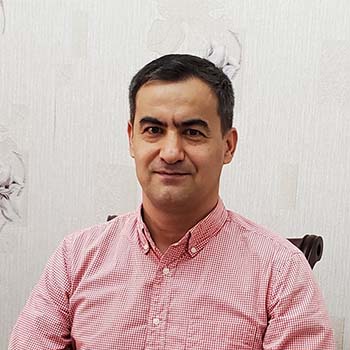 |
Prof. Rustam Shadiev
Zhejiang University, China
|
|
Prof. Rustam Shadiev earned his Ph.D. in Network Learning Technology from National Central University in 2012. He is currently a Tenured Professor at the College of Education, Zhejiang University, Hangzhou, China, specializing in advanced learning technologies for language learning and cross-cultural education. Prof. Shadiev is a Fellow of the British Computer Society and a Senior Member of the Institute of Electrical and Electronics Engineers (IEEE). In 2019, he was honored with the title of Distinguished Professor of Jiangsu Province, China. Further, he has been recognized as one of the most cited Chinese researchers in the field of education by Elsevier, Scopus, and Shanghai Rating for three consecutive years, from 2020 to 2022.
Speech Title: Breaking Boundaries, Building Bridges: Empowering Cross-Cultural Learning Through Technological Innovation
Abstract: This speech integrates findings from research on the cutting edge of technology's role in enriching cross-cultural learning experiences. It explores the dynamic ways through which advanced educational technologies-spanning from project-based collaborative platforms in digital environments to immersive virtual reality (VR) and innovative language translation tools-serve as catalysts for intercultural competence among globally diverse participants. The discourse begins by exploring the impact of collaborative cyber communities on enhancing cross-cultural understanding, emphasizing the vital role of educational communication in these settings. Attention is then shifted to the transformative potential of speech-to-text and translation technologies. These tools are scrutinized for their ability to support multilingual dialogue, with a focus on identifying both the accuracy rates of translations and the inventive strategies developed to navigate technological limitations, thereby promoting deeper cross-cultural exchanges. Further investigation is directed towards the immersive experiences afforded by 360-degree video technology within VR environments. This technology is celebrated for its capacity to significantly elevate participants' intercultural competence and engender a profound sense of virtual presence, offering a rich, immersive dive into foreign cultures. Additionally, the speech highlights an innovative application of drone technology for the creation of cultural videos. This method presents a compelling alternative to traditional field trips, particularly in the context of the constraints imposed by the COVID-19 pandemic, thereby enabling continued intercultural engagement and learning. Moreover, the role of speech-enabled corrective feedback technology in tele-collaborative projects is examined for its effectiveness in enhancing intercultural competence. This section delves into how immediate feedback on language use within spoken communication can lead to substantial improvements in intercultural understanding. Collectively, these inquiries illuminate the profound capacity of technology to transcend conventional educational boundaries, offering fresh perspectives and practical strategies for educators and researchers dedicated to cultivating a global mindset and intercultural skills among learners in an increasingly interconnected society. |
|
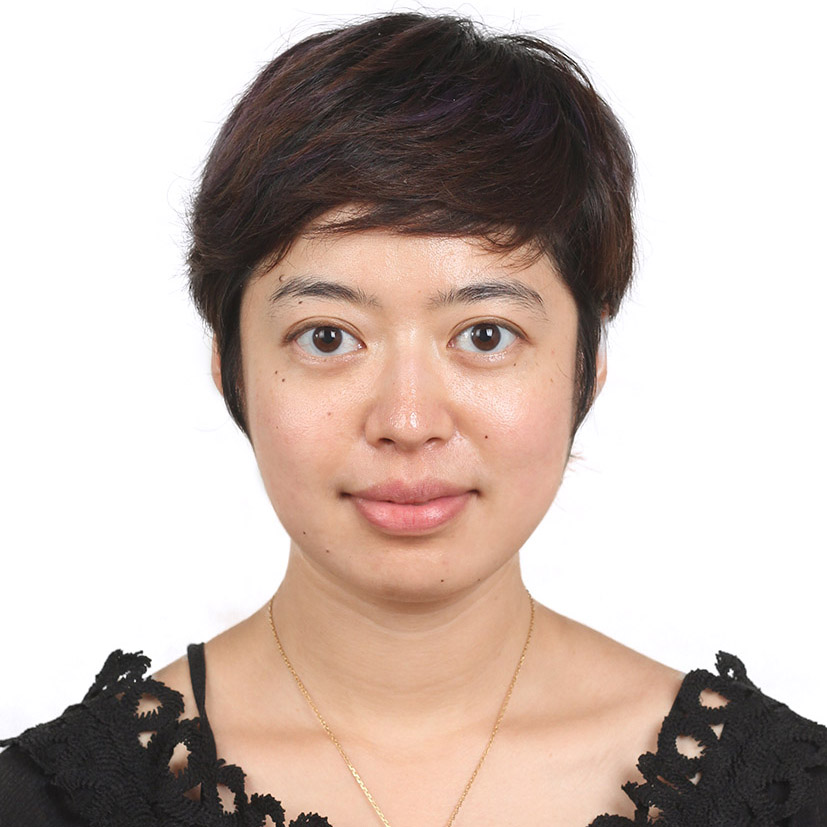 |
Dr. Xiaomei Yan
Shanghai Jiao Tong University, China
|
|
Dr. Xiaomei Yan is a lecturer in school of education, Shanghai Jiao Tong University. During her PhD studies in the UK, Dr. Yan explored the frontier development of science education research, focusing on classroom teaching of scientific epistemology and evidence-based teacher training for high school science teachers. After returning to China, Dr. Yan formed the research team in Huayu Education Technology Co., Ltd. and carried out the design-based education research to help the front-line primary and secondary school teachers deliver discipline - specific activities in the smart learning environment. During the postdoctoral period in Beijing Normal University, as the academic director and main participant of many projects, Dr. Yan participated in multi-level education research projects from micro to macro, and led the research team to conduct systematic research and extensive research on science education and scientific literacy in K12 stage in China. Her current research interests mainly include the cultivation of scientific literacy of gifted high school students and the improvement of teaching competencies of rural science teachers on scientific practices.
Speech Title: The Practice and Reflections on Integrating AIGC with Pre-service Teacher Training
Abstract: The talk presents the trials on integrating AIGC within one pre-service teacher training course. This course is aimed to prepare for the high school science teachers. One of the challenges for student teachers is to improve future students' creativity through the practice in lessons. This trial is focused on AIGC supported activities to improve student teachers' understanding of creativity and evaluations of creativity. Firstly, the student teachers are asked to do brain storm on one chosen topic (Group 1); then, using LLM apps to do brain storm on the same topic (Group 2). The student teachers employed "six thinking hats" in prompts to conduct brain storm again (Group 3). Secondly, the student teachers blind rate the results of group 1+ group 2 + group 3. The whole class discussion is organized on the results and compared the 3 conditions. Student teachers are prompted to reflect on the evaluations of 'creativity' and the design of instructional tasks. Based on AIGC supported learning experiments, the student teachers develop deep understanding on creativity and how instructions and strategies influence the quality of creativity. However, the effective and reflective use of AIGC on broader topics in pre-service teacher training require further practice and research. |
|